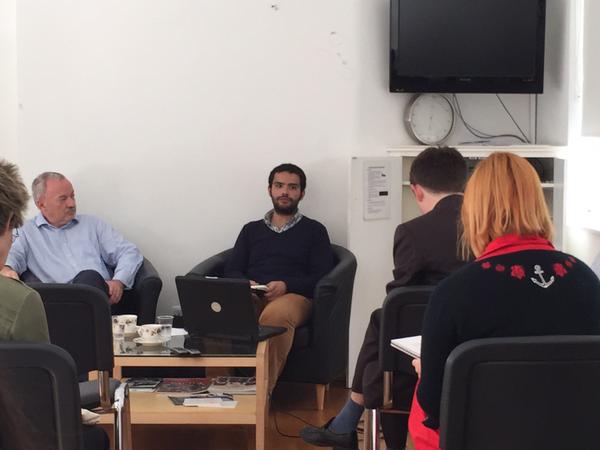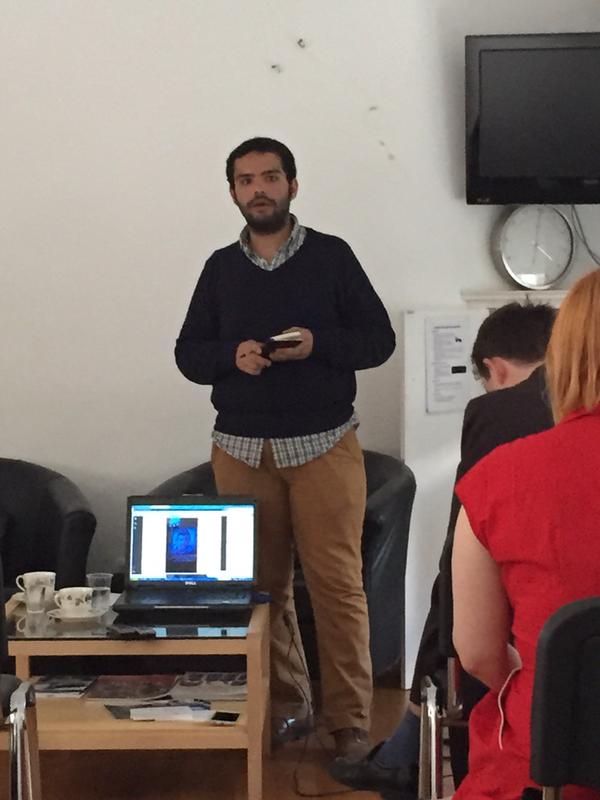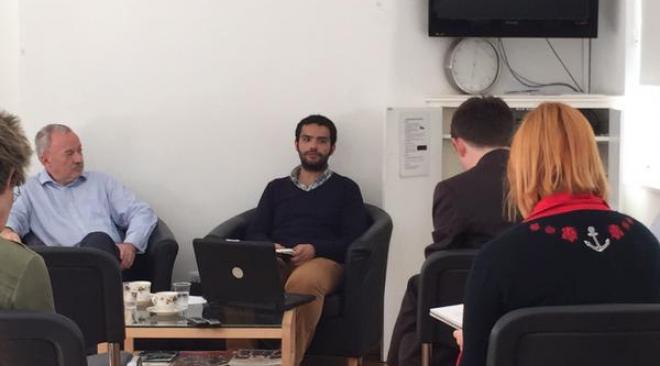The impact of the Syrian war on Lebanon: Caabu briefing with Guardian Middle East Correspondent Kareem Shaheen
On 8 June the Guardian Middle East Correspondent Kareem Shaheen gave a briefing on the impact of the Syrian war on Lebanon at a Caabu event chaired by Caabu Chairman, Andy Love. Kareem, who is based in Beirut, stressed the pressure Lebanon was coming under from the Syrian crisis during a highly informative talk on the region.
An audio recording of the event can be found here.

Kareem began with stories of individual Syrians he had met as a journalist in Lebanon. He spoke movingly of a Syrian family he met who had resorted to burning their own clothes and shoes in order to keep warm. He told a story about giving children, who had fled from Homs, paper to draw on. The images the children drew were of stick figures fleeing tanks and bombs.
Kareem documented the extent to which the Syrian crisis was effecting Lebanon. The population of Lebanon has reached the level it was predicted to reach in 2050 before the civil war in Syria began. One in every five people you meet in Lebanon will now be Syrian. To put this into context, Kareem said "the number of refugees in Lebanon is equivalent to 16 million refugees coming to the UK." 80% of the Syrian refugees in Lebanon are women and children. In addition to this there are no formal camps in Lebanon, making the Syrian crisis highly visible in Lebanon.
Kareem reflected on the wider situation in Lebanon and the role of ISIS and Hezbollah. He said that ISIS's attack on Arsal in 2014 led to a negative internal reaction against Syrians in Lebanon. Despite Lebanon not having a President for over a year, new restrictions were put in place for Syrian refugees, and further requirements for entry were enforced. This has meant that despite the conflict continuing to escalate in Syria, less refugees were registering in Lebanon. The number of refugees registering has dropped by 80% from last year’s level.
Despite this slow down, Lebanon's infrastructure is at breaking point. Kareem said other countries, both in the region and further afield are not doing enough to take the burden off Lebanon. He pointed out the UK has only taken 187 Syrian refugees. The stress the Syrian crisis is putting on Lebanon is leading to resentment against the Syrian community in Lebanon. This resentment is reflected in the new restrictions being placed on Syrian refugees. Kareem said the Lebanese government may become more punitive towards Syrians, particularly if the Syrian conflict moves closer to the Lebanese border.

Kareem turned to the role of Hezbollah in Lebanon. He pointed out Hezbollah is now acting as a conventional army: "they are more trained and serious than the Syrian army" and are even using new technology such as drones. Kareem said that without the support of Hezbollah and Iran the Syrian regime would almost certainly of fallen. Internal support for Hezbollah has waned in Lebanon with Hezbollah's involvement in Syria polarising opinion. Kareem said the Lebanese public tend to support Hezbollah when they are fighting Israel but not when fighting for Assad against Syrians.
Kareem finished by highlighting the severity of the situation for Syrian refugees in Lebanon stating a Save the Children statistic which claims roughly 40% of young Syrians in Lebanon have contemplated suicide.
You can follow Kareem on Twitter @kshaheen

